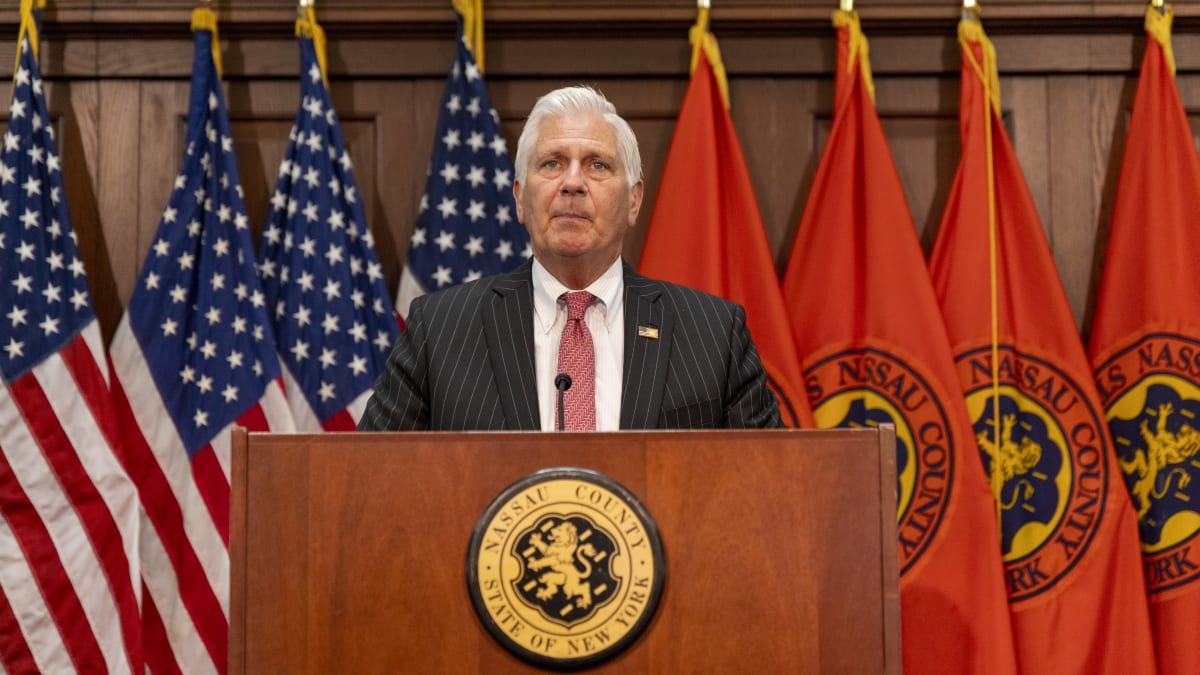
A Nassau County executive who banned transgender female athletes from playing on women teams in county facilities filed a lawsuit on Tuesday against New York Attorney General Letitia James who had sent him a letter demanding the order be reversed.
In the complaint filed in the Eastern District of New York, County Executive Bruce Blakeman’s lawyers argued that the letter “violates the constitutional rights of biologically girls and women who are a federally recognized protected class.” James, her office, and the state of New York are all named as defendants.
In the Feb. 22 executive order from Blakeman, he said that sports teams must be designated based on assigned sex at birth in order to play at a Nassau County Parks property. On Friday, the NY AG’s office called for the order to be rescinded in a cease-and-desist letter, citing New York State Human Rights Law.
According to the law, it is illegal for public accommodation to discriminate on the basis of sex or “gender identity or expression,” and it’s similarly illegal to compel others to commit discrimination. In the letter, Civil Rights Bureau Chief Sandra Park argued that the executive order would discriminate against transgender women and girls hoping to play on sports teams which correlate to their gender identity.
In the complaint, lawyers said that the Human Rights Law does not apply to transgender people. They argued that its application by the AG’s office was unlawful because it violated the Equal Protection Clause in the 14th amendment, which does protect women and girls, but does not protect transgender people.
The lawsuit included additional plaintiffs Marc and Jeanine Mullen and their 16-year-old daughter, who lawyers claim are “being forced into making the impossible determination whether to expose their 16-year-old daughter to the risk of injury by a transgender girl or simply to not play volleyball at all.”
The 16-year-old is “an unmistakable member of a long-established protected class,” lawyers said.
The language of the complaint mirrors that of the original cease-and-desist letter, which said, “[t]he Order’s immediate effect is to force sports leagues to make an impossible choice: discriminate against transgender women and girls, in violation of New York law, or find somewhere else to play.”
The complaint also cited debunked and dangerously transphobic talking points often used to exclude trans athletes, including the “undeniable” biological differences between men and women, and the “extreme discomfort” some players experience in the locker rooms.
The complaint also said that the executive order did not violate New York State’s anti-discrimination laws. In the cease-and-desist letter, Park argued that the order constitutes sex discrimination because it would, “impose increased scrutiny of members of teams designated for women or girls and may result in subjecting them to intrusive and inappropriate inquiries.” The same scrutiny would not be placed on men’s soccer teams or athletes.
In the complaint, lawyers argued that transgender athletes could still compete, and that the order “invites” them to join teams that do not identify as “exclusively all-girls or all-women.”



